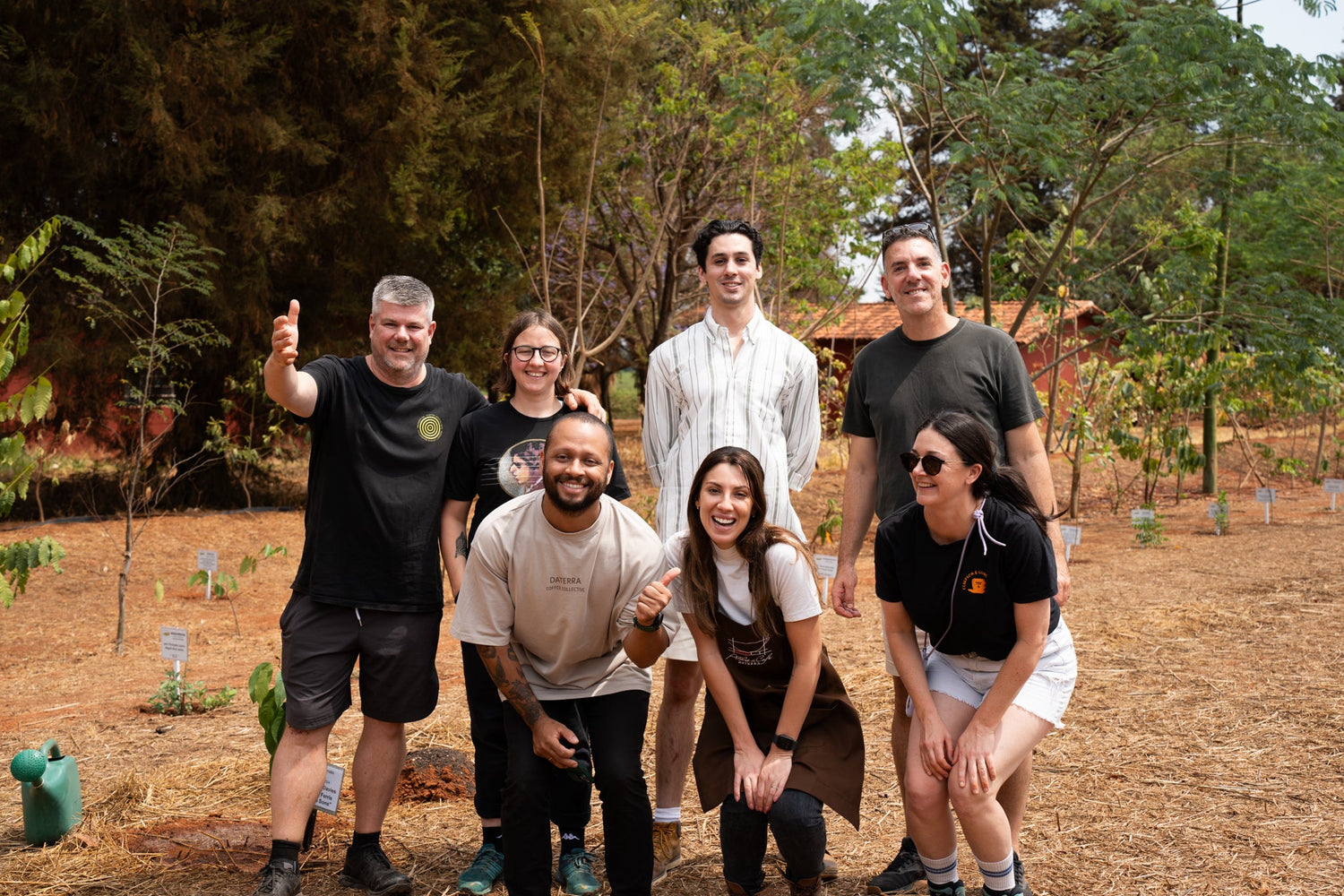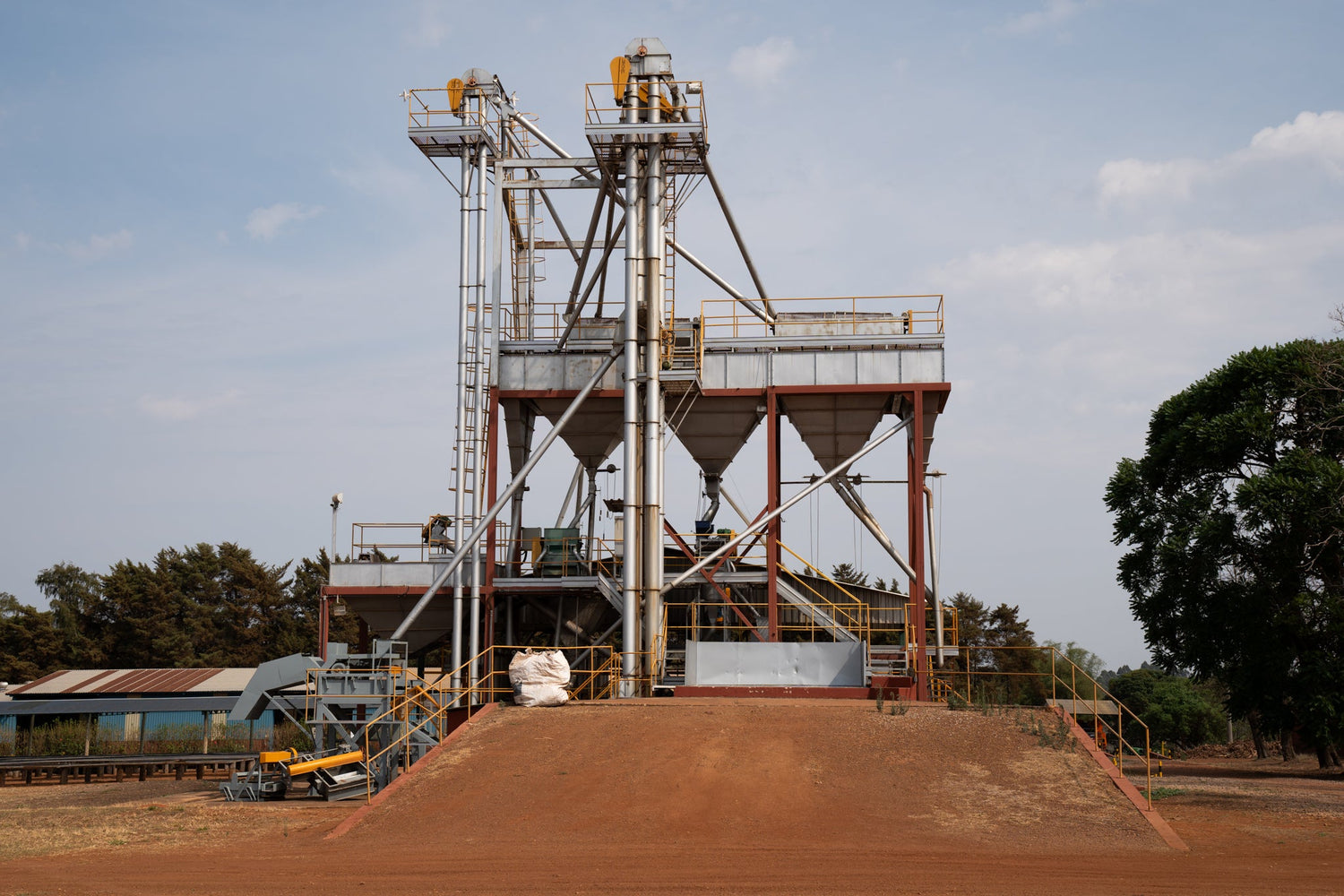Yunnan is a province in China, bordering a number of coffee rich regions such as Myanmar, Laos and Vietnam. Aside from Yunnan being a must see destination due to its scenic mountainous views and richly decorated history. Yunnan is also a tantalising melting pot of rich and spicy food. (check out the Netflix series 'Flavourful Origins' to see Yunnan Cuisine). This particular coffee comes from Shigaoqunig and Guiben, traditionally famous for its exceptional tea. Based in a remote part of Yunnan, east of Pu’er City and close to the border, the region is home to many ethnic minorities including Hani, Miao, Dai and others.

The Yunnan landscape is an ideal location for the growth of coffee in the region and plays a major part towards the fine production of arabica beans. It is a mountainous and fertile land.

We spoke with Christian who works as an importer for Indo-China to dig deep into the region and its coffee production.
What makes Yunnan a great region for coffee production?
“The climate and terroir in Yunnan are perfect for growing coffee: fertile, volcanic soil with very cold nights and sub-tropical afternoons. The heat of the day and the cold of the night enables the coffee cherry to mature slowly into juicy, ripe fruit which – in turn – translates into a naturally sweet and clean cup of coffee.
Commercial grade coffee has been grown here at scale since the 1990s but, up until only a few years ago, the focus on specialty coffee has been minimal. Farmers tend to concentrate more on the plant most associated with Yunnan (some tea trees here are rumoured to be in excess of a thousand years old) as well as cash crops such as sugar cane whenever the price rises.
But through our close links with a number of forward-thinking producers and farmers in Yunnan, we’ve built some fantastic partnerships and we’re finding that the coffees are getting better and better and more versatile and more
interesting every season. There’s a real buzz and pride in these coffees.”

What has made it difficult in the Yunnan region for coffee production?
“In a very generalised way and like in many places in the world, when governments focus on a particular area of business it can be a blessing and a curse at the same time! There has been a tremendous amount of attention paid to coffee production in Yunnan in recent years by national and local government departments as well as international agencies such as the Coffee Quality Institute, resulting in multinational coffee trading businesses piling into the area.
Prices for conventional (non-specialty) coffee have gone through the roof in the region, creating a lot of excitement and financial opportunities which have been great for farmers in the short-term. But it’s also resulted in some dubious buying practices and a risk of a race to the bottom in terms of Quality.”
What work is done to create a more sustainable production chain?
“Following on from the above, we believe that one of the key drivers to sustainable production lies in long-term commitments to farmers and producers from those people who source and buy coffee at origin (like ourselves). Moving towards multi-year commitments in terms of the type and volumes of coffee that we buy supports strategic planning on the ground in terms of investment in and care for the land in which it grows. Our origin partner, Yunnan Coffee Traders, set out their commitment to sustainability and transparency in terms of product quality and ensuring financial stability and stewarding of the environment.
They understand that their current actions have the potential to affect the future of Yunnan coffee for better or worse. The knowledge transfer between YCT and farmers is a two-way process, working together to understand why things are the way they are. Then, from that understanding, we can identify what needs to change, what needs to remain, and what needs a whole new way of thinking! Rather than simply consider the ‘farmgate price’, they prefer looking at the cost of production, because this recognises the hard work, risk, and innovation that has been invested in producing specialty coffee.
Understanding the actual costs of production, looking together for new efficiencies, and collaborating on best practices in processing allows for a more sustainable financial model for everyone.”
What does the future of coffee production look like in Yunnan?
“Very positive!
-
Increasing quality – when we started in 2016, coffees mostly lower end of specialty scale, now achieving scores of 85+
-
More experimentation – whilst Catimor remains the prevalent variety, other varieties such as typica, pacamara, bourbon and gesha that were planted 3-5 years ago will now be maturing and producing cherry.
- More specialty industry players will commence operations in Yunnan given the potential for scaling the production. Interesting to see how domestic demand in China may impact the availability of Chinese specialty coffee elsewhere.”



